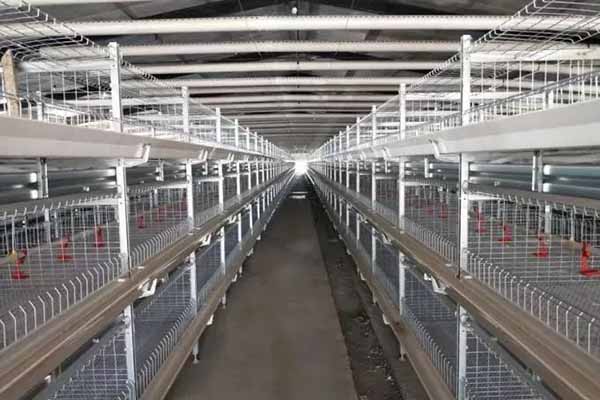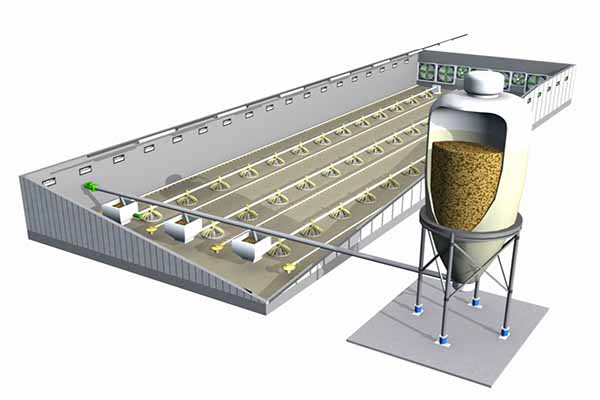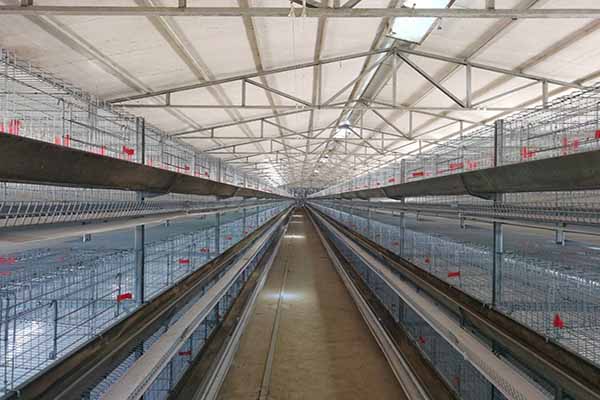Unlocking the Potential of the Poultry Business in Ghana
Time : 2025-05-13
Are you thinking of venturing into the poultry business in Ghana? Or maybe you’re already in the industry and looking to expand your operations? Regardless of your situation, understanding the nuances of the poultry business in Ghana is crucial for success. In this article, we’ll delve into the key aspects of the poultry industry in Ghana, offering insights and tips to help you thrive in this dynamic market.
Understanding the Poultry Industry in Ghana
Ghana’s poultry industry has been growing steadily over the years, driven by an increasing demand for meat and eggs. As of 2023, the industry is valued at around $100 million and shows no signs of slowing down. This growth is attributed to several factors, including a growing population, urbanization, and an increase in per capita income.
The Market Demand
One of the most compelling reasons to consider the poultry business in Ghana is the high demand for poultry products. According to a report by the Ghana Poultry Farmers Association, the local demand for chicken meat and eggs is projected to increase by 15% annually over the next five years. This presents a significant opportunity for entrepreneurs to tap into this growing market.
Supply Chain and Distribution
Effective supply chain management is crucial in the poultry business. In Ghana, the supply chain involves hatcheries, feed mills, farming, processing, and distribution. It’s important to ensure that your business is well integrated into this supply chain to ensure a steady flow of products to the market.

Starting Your Poultry Business in Ghana
Choosing the Right Species
The first step in starting a poultry business is deciding which type of poultry to raise. In Ghana, the most common species are broilers (meat chickens) and layers (egg-laying hens). Broilers are preferred for their rapid growth and high meat yield, while layers are chosen for their egg production. Consider your goals, market demand, and the resources available to you when making this decision.
Setting Up Your Farm
Once you’ve decided on the species, it’s time to set up your farm. This includes choosing a suitable location, constructing poultry houses, and obtaining the necessary equipment. Ensure that your farm is designed for optimal growth, health, and biosecurity. Also, consider the legal requirements, such as obtaining a license from the Department of Agriculture.
Operational Aspects
Feeding and Nutrition
Proper feeding and nutrition are vital for the health and productivity of your poultry. In Ghana, there are numerous feed suppliers that offer quality feed formulations. It’s essential to ensure that your birds receive a balanced diet to maximize their growth and egg production.
Health Management
Keeping your birds healthy is a top priority. Regular health checks, vaccination programs, and proper biosecurity meas ures are essential to prevent disease outbreaks. Work with a veterinarian to develop a health management plan for your farm.
ures are essential to prevent disease outbreaks. Work with a veterinarian to develop a health management plan for your farm.
Marketing and Sales
Benchmarking Prices
Understanding the market price for poultry products is crucial for setting your prices and ensuring profitability. Keep an eye on the market trends and adjust your pricing strategy accordingly.
Expanding Your Market Reach
Think beyond local markets and  explore opportunities for exporting your poultry products. Ghana’s trade agreements with various countries can open doors to new markets. Attend trade fairs, build relationships with importers, and leverage online platforms to expand your reach.
explore opportunities for exporting your poultry products. Ghana’s trade agreements with various countries can open doors to new markets. Attend trade fairs, build relationships with importers, and leverage online platforms to expand your reach.
Challenges and Opportunities
Like any business, the poultry industry in Ghana comes with its set of challenges. These include high feed costs, disease outbreaks, and competition. However, there are also numerous opportunities, such as technological advancements, government support, and a growing consumer base.
Conclusion
Embarking on the poultry business in Ghana can be a rewarding venture if approached with careful planning and execution. By understanding the market dynamics, focusing on operational excellence, and leveraging available resources, you can build a successful poultry business that contributes to the country’s economy.











